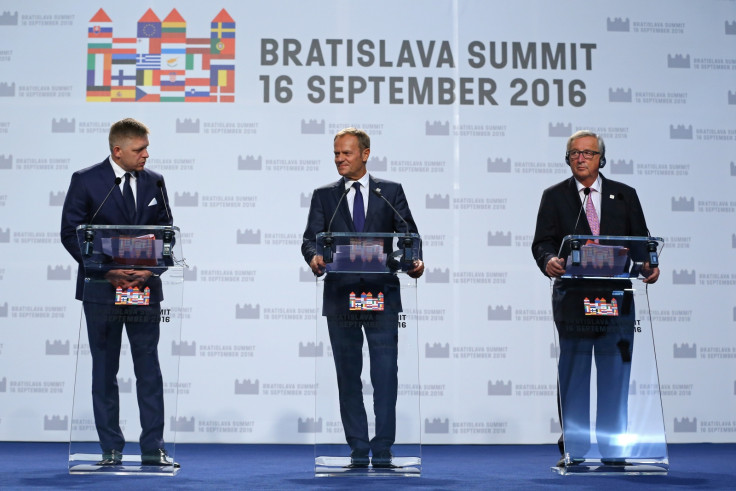Theresa May likely to trigger formal Brexit talks in January or February, Donald Tusk says
The European Council president made the revelation after an informal summit of EU countries in Bratislava that did not include the UK.

The UK is likely to begin formal talks to leave the European Union early next year, Donald Tusk, president of the European Council has said. He added that Prime Minister Theresa May had revealed the same to him in a meeting this week.
"Prime Minister May was very open and honest with me. She declared it is almost impossible to trigger Article 50 this year. But she said it is quite likely they will be ready in maybe January or maybe February next year," he said. Article 50 of the Lisbon Treaty is the formal mechanism for leaving the bloc.
Tusk revealed the same after the conclusion of an informal summit of 27 EU countries in Bratislava, the capital of Slovakia. The summit that did not include Britain was organised to regroup the bloc that has been hit by the Brexit and migration crisis.
The EU official, however, added that the rest of the EU was willing to start negotiations as early as the next day. "We are well prepared for negotiations and could even start tomorrow. But we respect the needs of our British colleagues....Our British colleagues need more time to prepare themselves."
Tusk said that while the negotiations will be done such that the "possible relations between the UK and the EU" are protected, there was a need for Brussels, the de facto capital of the EU, to "protect the interests of the remaining 27 states ... and the European Community".
This follows May indicating previously that negotiations with EU would include placing curbs on their citizens entering the UK. Now, many EU leaders as a response, have restated their intention that Britain will not be allowed to participate in the bloc's single market if this restriction on the free movement of workers is imposed by the UK.
For instance, Slovak Prime Minister Robert Fico was quoted by the Financial Times as, "I will be perfectly frank. Unlike the UK, we know what we want. Our position is clear. We will not allow this negotiation to damage our interest...You cannot get away from the feeling that such negotiations run the risk of creating second-class citizens in the UK. That will be a crucial point for us in negotiations."
Jean Claude Juncker, the European Commission president also supported this view of the EU leaders. "There is a clear link between access to the single market and the basic principles of the internal market, especially the free movement of workers. We cannot see any possibility of compromise on this issue. We have this link between the internal market and the principles of the internal market," he explained.
© Copyright IBTimes 2024. All rights reserved.





